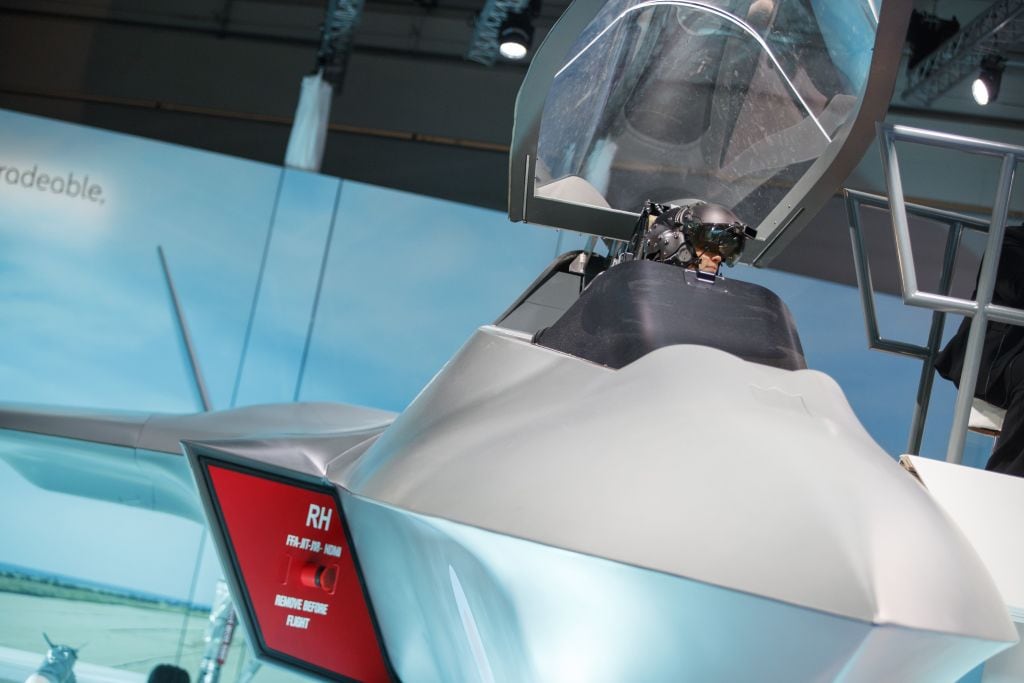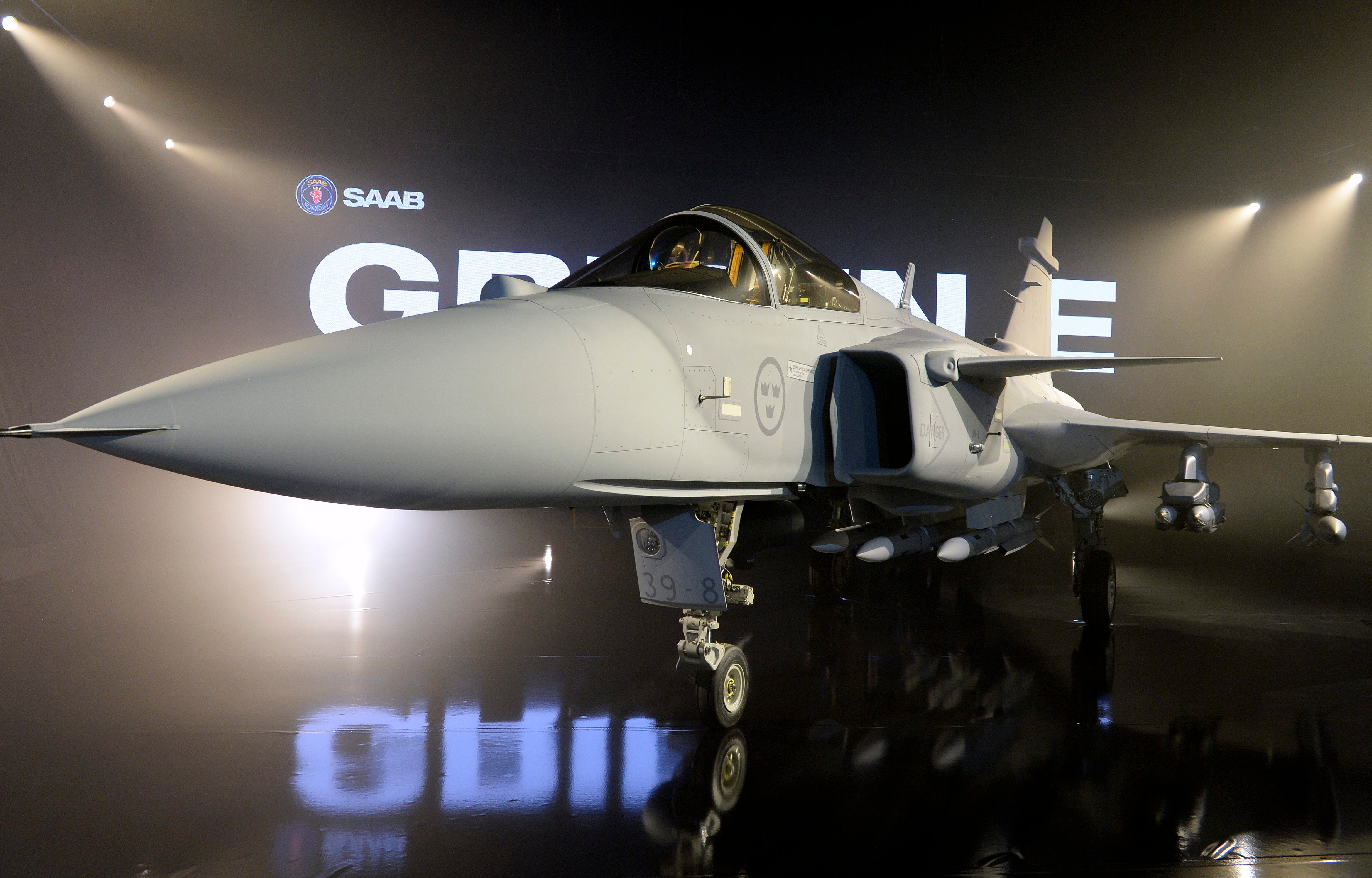LONDON – BAE Systems and Leonardo on Wednesday formalized a partnership agreement to cooperate on the Tempest next-generation combat aircraft, following a pact signed between the U.K. and Italian governments late Tuesday afternoon.
The inclusion of Italy in the ambitious project marks the third partner nation, following Sweden, that the British were able to sign. And BAE officials on hand here at the DSEI defense trade show hinted that more could follow soon.
Leonardo brings with it a smattering of Italian companies, including Avio Aero and Elettronica, adding to the team of MBDA and Rolls Royce already onboard.
BAE Systems chief Charles Woodburn said both nations and their respective industries are “committed” to seeing Tempest through. The program is envisioned to be a sixth-generation, aerial combat system featuring manned planes, drones, sensors and weapons working in unprecedented collaboration.
The two countries already work together on the American-led F-35 as well as the Eurofighter Typhoon. Advancing those programs is also an explicit objective in the new partnership between London and Rome.
A statement released by the UK Ministry of Defence Wednesday morning framed the government agreement – signed by Simon Bollom, the head of Defence Equipment and Support, and Lt. Gen. Nicolò Falsaperna, Italian Secretary General of Defence – as a broad pledge to cooperate on matters of “combat air capability.” The idea is to “deepen discussions on Tempest military requirements,” come up with a “road map” for feeding advanced Eurofighter capabilities into the future program, and facilitate an industry ecosystem to make it all happen, according to the statement.
RELATED

“The U.K. and Italy have a proven 50-year track record of working closely together on Combat Aircraft development and support through the Panavia Tornado and Eurofighter Typhoon programs,” reads the defense ministry statement. “Both governments confirmed a common desire for a strong industrial base to develop key capabilities and boost prosperity in both nations. The agreement also paves the way for closer industrial collaboration, including through shared industrial entities such as Leonardo and MBDA.”
Leonardo CEO Alessandro Profumo lauded the joint Tempest effort as an “ambitious and strategically important” program. Joining it this early in the process, he said, would allow his company greater say in future decisions.
The U.K.-Italy venture comes as France, Germany and Spain are working on their own version of Europe’s next-generation weapon, the Future Combat Air System. With much pomp and circumstance accorded here to the Tempest effort, including promotion under the banner of the Royal Air Force and a full-scale mockup sitting prominently in the exhibit hall, the continental counterpart appeared more of a distant theory in comparison.
The FCAS program, led on the industry side by Airbus and Dassault, has been dogged by a fundamental disagreement between German and France about the exportability of its envisioned components. Berlin taking a more restrictive stance than Paris when it comes to potential buyers in the Middle East.
Following Spain's recent inclusion in the program, the Madrid government has designated electronics specialist Indra as the national industry lead, a move that left the Spanish Airbus division feeling burned, according to sources.
RELATED

Trade show attendees here associated with the FCAS program brushed aside the notion of Tempest as the more concrete proposal, noting how Brexit would cast a shadow of uncertainty on the UK's budget, not to speak of Italy's ongoing financial troubles.
At the same time, the U.K.-Italian-Swedish and the Franco-German-Spanish efforts make for formidable competition in a continent where military budgets are limited.
Asked by a reporter how he sees the two programs play out over the next ten years, Profumo only stated the obvious: “Two programs are more expensive than one.”
So where might the British turn next in their quest for international partners?
Woodburn, the head of BAE, told Defense News that talks with other possible partners are ongoing. "We are in discussions with other nations, but what it shows is there are plenty of people who want to join the team although they may be different types of partners to the ones we have right now," he said.
Leonardo U.K. boss Norman Bone said Team Tempest hadn’t stopped talking to core companies but were also looking at partners who bring other benefits. “We haven’t drawn the line on industrial capability but maybe there are partners who bring money and markets in exchange for technology transfer,” said Bone.
Enzo Benigni, the CEO of Elettronica, said his company’s participation in Tempest is a crucial milestone for the company. “It’s a partnership that will last 40 or 50 years,” he told reporters.
Sebastian Sprenger is associate editor for Europe at Defense News, reporting on the state of the defense market in the region, and on U.S.-Europe cooperation and multi-national investments in defense and global security. Previously he served as managing editor for Defense News. He is based in Cologne, Germany.
Andrew Chuter is the United Kingdom correspondent for Defense News.








